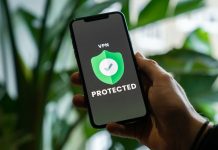Even if you’re an MMO Pro who loves BDO, nobody is safe from online gaming risks. And if you’re a Roblox rookie, you certainly have a lot to learn about the dangers of online gaming. From doxxing and griefing to data theft and dangerous downloads, an online game can be more than just swamps or star fields. In fact, it can be a wild-west of cyber criminals and cowboys, too.
To help you get a grip on the slippery topic of cyber security, we’ll discuss gaming threats and top security tips to follow when playing MMO games.
Most Common Gaming Threats
Sun Tzu said, ‘Know thy enemy.’ It’s good advice both for slaying beasts and securing your gaming system. So, to help you reign undefeated for a hundred battles, here are the common threats you’ll face while gaming online.
Infection
Before you can travel to Tamriel or Badimo’s Jailbreak, you have to download the game. That’s where you can get infected. If you’re not downloading your game from the official site or a reputable game client, you may be letting trackers and malware in, too. The same goes for installing mods, cheat engines, or even buying DLCs.
Doxxing
Hackers dox (or intentionally expose personal information online) indiscriminately, so even MMO gamers aren’t safe. If cybercriminals discover your address, they have leverage. They can use this to threaten you or to gather more personal information, which can leave you vulnerable to digital fraud or identity theft.
Your IP (internet protocol) address is one of the ways criminals can lay hands on your home address. This is because your IP address is provided by your ISP (internet service provider). If your IP address is visible, hackers can determine your geographical location, your ISP, and additional information about your network connection. So, it’s important to keep your IP hidden from other players and server owners. The best way to do it is using a service like a VPN.
Malicious Listening
So long as you’re not oversharing online, chatting with players should be safe. But leaving your microphone on while you’re talking to someone outside the game may let listeners in on something private. So, it’s safest to mute your mic whenever you’re not speaking or to only speak with the people in your party.
Account Theft
Hackers can get your password through many of the means above, but few games will allow them to use your account for their gain (besides wasting your money on in-game currency). The larger concern is whether you’ve used the same password for other accounts, like your email or game client. Cybercriminals profit greatly when this happens, so you should never reuse passwords.
Gaming Threats to Children
Children are also exposed to many threats while gaming online. They can leave microphones on, be harassed, or tricked into sharing private information. These risks include:
Cyberbullying
Cyberbullying is common online, especially when gaming. Kids are particularly vulnerable to it, and you should try to protect them as a parent. Check whether their games are appropriate for their age, and teach them to report or block rude players.
Privacy
A child may see no harm in talking about their day or their friends and family. But it’s inappropriate to tell personal information to online strangers. Teaching kids about online privacy and safety should be done the same way parents warn against strangers in real life.
In-game purchases
The most common threat to all parents with gaming kids is overspending. All MMOs allow for extreme purchases of online currency, so if your child has your credit card information or can take your credit card without you knowing, they could rack up churlish charges. The best solution is to do all payments yourself and to uncheck “save payment method” every time.
How to Prevent Online Gaming Threats
Kids and adults alike can benefit from using the following tips:
Use Secure Passwords and 2FA
When designing your passwords, you should use numbers, multicase letters, symbols, and a length of over 14 characters. And you shouldn’t reuse the same password on more than one account.
Many game clients also require or allow two-factor authentication (2FA), which uses an email code on top of the regular password. It’s far better than counting on one password.
Protect Your Personal Information
Your real name, address, email address, IP address, and phone number are especially vulnerable to abuse. Besides the initial sign-up for reputable, official games, you shouldn’t mention your personal data during online play. If you make a friend online, it’s best to add them to your gaming client or another private account like Discord.
Think Critically When Downloading
Cheats, free games, and third-party mods are the greatest risks to your computer and accounts. Additionally, scam emails may offer game trials or downloads that are malware in disguise.
Use Security Software
As most games use .exe files, there’s a risk of accidentally downloading and executing a virus. Security software warns you before opening potentially malicious files, saving you from breaches or breakdowns.
Don’t open in-game links
Most in-game chats prevent players from sending links to avoid responsibility. But there are exceptions and workarounds. Avoiding all links reduces the risk of infection, and it’s a habit that your children should practise, too.
Final words
Cybercriminals are always cooking up new schemes, so online gaming is a tricky place to navigate. It’s safest to remain polite and private with your personal information. Chatting about the game and related topics is fine and fun, but be wary when the conversation strays towards you or your life.



